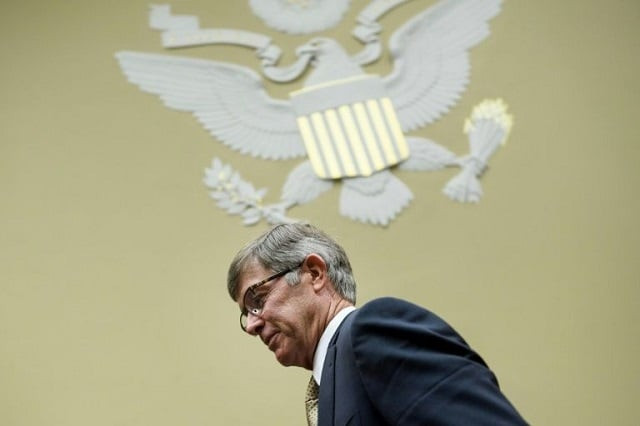Whistleblowers: What does US law say about them?
Any whistleblower must signal his or her complaint to the inspector general, who has 14 days to review it

Acting director of national intelligence Joseph Maguire told Congress he was acting within the law when he opted not to forward a whistleblower complaint to lawmakers . PHOTO :AFP.
Here is a look at federal whistleblower protections for the intelligence community:
The Intelligence Community Whistleblower Protection Act, which was passed by Congress in 1998, set up specific procedures for employees to follow in reporting conduct that relates to classified information.
It was amended in 2010 with the creation of the Office of the Intelligence Community Inspector General, which is independent from the Director of National Intelligence (DNI), who oversees the country's various intelligence services.
Trump complains again of harassment after impeachment probe launched
Any whistleblower must signal his or her complaint to the inspector general, who has 14 days to review it.
If it is deemed credible and of "urgent concern," the complaint is then forwarded to the DNI.
"Urgent concern" is defined as "a serious or flagrant problem, abuse, violation of law or executive order, or deficiency relating to the funding, administration, or operation of an intelligence activity... involving classified information, but does not include differences of opinions concerning public policy matters."
The DNI then has a week to forward the complaint and any additional information to the House and Senate intelligence committees.
The whistleblower is protected from retaliation, including firing, provided that he or she follows the narrowly defined protocol.
On August 12, a member of the intelligence community -- a CIA officer, according to The New York Times -- filed a complaint about a July phone call between Trump and Ukrainian President Volodymyr Zelensky.
The complaint signaled an issue of "urgent concern" -- namely, that the "President of the United States is using the power of his office to solicit interference from a foreign country in the 2020 US election."
Inspector General Michael Atkinson deemed the complaint credible and forwarded it to acting director of national intelligence Joseph Maguire.
But after consulting with the Justice Department and other White House attorneys, Maguire -- recently named by Trump -- concluded that he was not obligated to inform Congress, saying it fell short of the bar.
On Thursday, Maguire testified before Congress that the telephone conversation between Trump and Zelensky was subject to executive privilege and was not an intelligence matter.
He also expressed doubts about what he called the whistleblower's "secondhand" information.
The law says that the whistleblower can go directly to the two congressional intelligence committees -- but only if he or she informs the inspector general first and asks the DNI for advice on how to contact the committees in a secure manner.
But it was Atkinson who told lawmakers about the complaint, without revealing its contents. Such a situation is unprecedented, and the law doesn't offer guidance on what to do if the DNI dismisses the complaint without further action.
For Adam Schiff, the Democrat head of the House Intelligence Committee, Maguire had "neither the legal authority nor the discretion to overrule a determination" by the inspector general.
Moreover, Schiff said, Maguire does not "possess the authority to withhold from the committee a whistleblower disclosure from within the intelligence community that is intended for Congress."
Maguire said Thursday: "I have upheld my responsibility to follow the law every step of the way."
The president's right to withhold information on the basis of executive privilege has been a sticking point between Congress and the White House since the intelligence whistleblower law first took effect in 1998.
Trump says he put ‘no pressure’ on Ukraine, as tension mounts
Former president Bill Clinton, who signed the law, said at the time that it did not "constrain" his "constitutional authority" to review and control disclosure of classified information to Congress, noted Robert Litt, a former general counsel to the Office of the DNI, on the Lawfare blog.
Harvard law professor Jack Goldsmith, a former White House counsel, said last week that executive privilege should prevail in these circumstances.
"The president's power to act in confidence is at its absolute height when he has a classified conversation with a foreign leader," Goldsmith said on Twitter.
"This isn't a defence of Trump, it's a defence of the presidency."












1724319076-0/Untitled-design-(5)1724319076-0-208x130.webp)






COMMENTS
Comments are moderated and generally will be posted if they are on-topic and not abusive.
For more information, please see our Comments FAQ